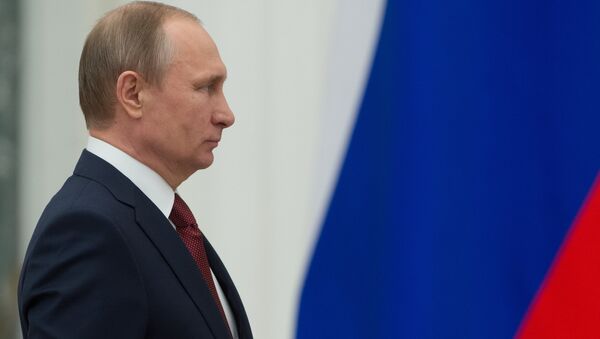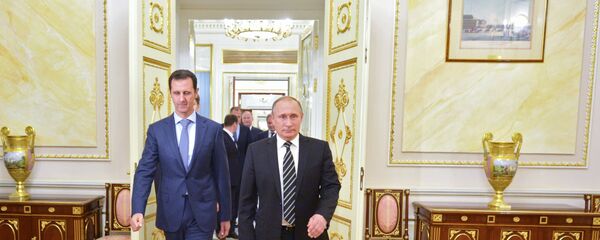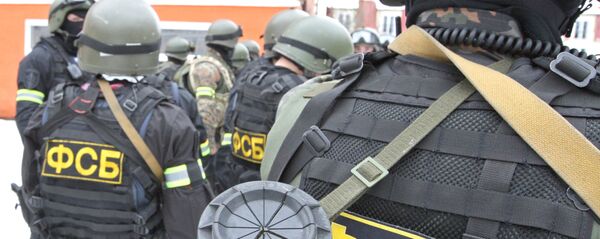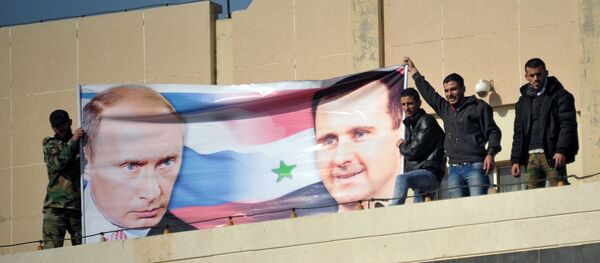Crimea’s reunification with Russia, success in resolving the Syrian crisis, intensification of cooperation with southeastern Asia, active intra-political operations, modernization of the Russian Armed Forces are among Putin’s main victories, according to experts and lawmakers.
Assessing the achievements of the past four years, they also point out vulnerabilities in the country’s economy and call for reforms in this sector.
Chess-Game Moves
Crimea’s reunification with Russia and the operation of the Russian Aerospace Forces in Syria became the apotheoses of Putin’s foreign policy trend which he has been planning since 2000, lawmakers believe.
"Indubitably, both foreign and domestic policies have been successful, the country became stronger, it is evident. What he began in 2000, paid off in 2014. Reunification with Crimea and the operation in Syria were the apotheoses," Mikhail Yemelyanov, of the party A Just Russia, told RIA Novosti.
Valeriy Ryazansky, who heads the social politics committee in the Russian upper house, pointed out that Russia managed to make BRICS and the Shanghai Cooperation Organization (SCO) instruments of political dialogue in the international reality.
According to Igor Lebedev of the Liberal Democratic Party of Russia, the country yet again declared itself as a strong state.
"Russia stated that the unilateral world where all decisions were made and are made under dictation of one state came to an end," Lebedev told RIA Novosti.
Deputy head of the Russian State Duma Defense Committee Frants Klintsevich speaks of modernization of the Russian armed forces.
"The last four years have definitely been a breakthrough in this sector. Nowadays we have one of the most modern militaries in the world," he said.
Principles of Internal Politics
According to Russian parliament’s deputy speaker Sergei Zheleznyak, despite the serious opposition in economic, financial and political spheres, Moscow "uses this difficult time to increase domestic production, to strengthen food security, to… expand the most advanced production facilities in strategically important sectors."
He also pointed out that much funding was being spent on serious infrastructure projects.
According to Yemelyanov, the stability in internal politics is a success, as well as "stability in international relations, terrorism has almost been repressed."
Achilles' Heel
A number of parliamentarians have also pointed out the ineffectiveness of Russia’s economic trends.
"The economy is the Achilles’ heel. It is impossible to have a strong country without strong economy. I believe that here it is necessary to take a closer look at the work of the Central Bank, at the work of the financial and economic bloc of the government," Yemelyanov said.
Ryazansky called for development of Russia’s own production and increasing domestic demand.
Putin's Majority
According to the survey conducted by the non-governmental Russian research company Levada-Center, 82 percent of those interviewed said that they generally approve the work of Putin. The indicator remained the same since the start of the year.
According to the Russian Public Opinion Research Center (VTsIOM), around 84 percent of Russians do not rule out voting for Putin again.
"The Russian president continues to gain more and more support from the various political forces. He is supported by both members and supporters of parliamentary parties… and parties who are not represented in the Russian State Duma," VTsIOM found.
Around 64 percent of the so-called "non-system opposition," or oppositional forces which operate outside of the official political establishment, support Putin and would not rule out voting for him.
Putin’s personal qualities such as hard work, experience, energy, willpower and work in the interests of Russia have been noted by researchers.






